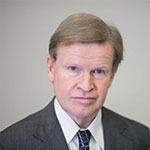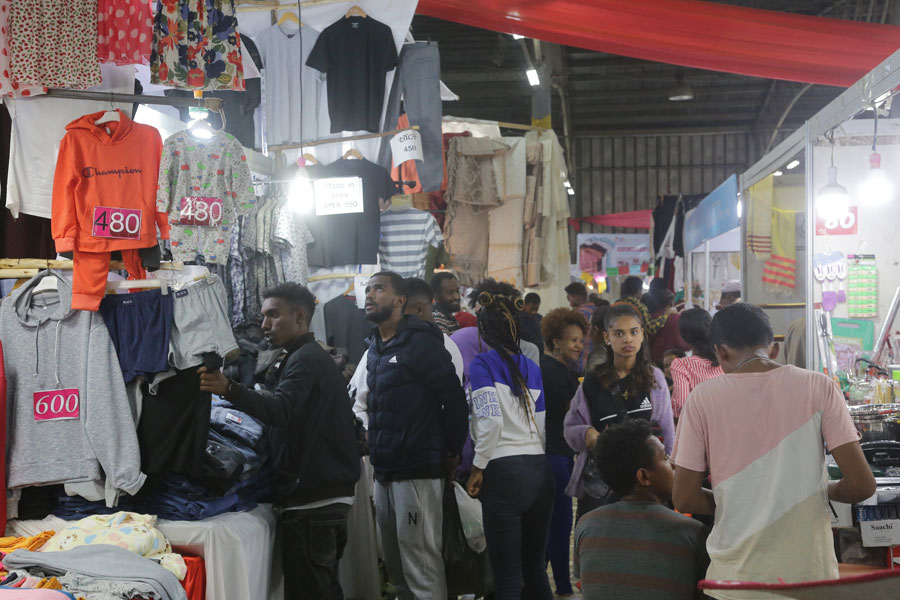
Nov 25 , 2023
By Harold James
As the world wrestles with a surge in inflation, its impact on global politics is becoming increasingly evident. From democracies to autocracies, the rising cost of living is not just an economic issue but a catalyst for political upheaval, warns Harold James, a professor of History and International Affairs at Princeton University, in this commentary provided by Project Syndicate (PS).
The recent worldwide surge of inflation is forcing political change, reminding us how efficiently this old economic problem can topple governments. In democracies, election outcomes often hinge on price developments. But the effect on autocracies is no less pronounced because inflation erodes the implicit social compact on which they base their authority.
In Argentina, the election of a radical self-styled anarcho-capitalist, Javier Milei, as president can be understood as the immediate consequence of the incumbent Peronist regime's inability to deal with inflation, which has hit an annualised rate of 143pc. Milei's most important campaign promise was to restore price stability by abolishing the central bank and replacing the Argentine peso with the US dollar.
Ending monetary autonomy is a bold and risky experiment that will severely limit government action. But that is exactly the point. Since the previous government tried to do too much and manifestly failed, voters now feel as though anything would be better than more mismanagement.
At first blush, Russia looks surprisingly stable by comparison. Its annualised inflation rate recently rose from six to seven percent, whereas even the United States and the eurozone briefly flirted with inflation in the double digits last year. But the US, the eurozone, and the United Kingdom have all brought inflation back down below five percent, while Russia is moving in the opposite direction. Its inflation also surged in 2022, following the full-scale invasion of Ukraine – just as it had done in 2014 after the initial seizure of of territory in Crimea and eastern Ukraine.
From April 2022, Russia's inflation rate fell for a full year and almost looked as though it would settle at a respectable 2.5pc. But that stability turned out to be an illusion. Inflation returned this summer, following Wagner Group leader Yevgeny Prigozhin's aborted putsch, and it now represents the greatest immediate risk to Russian President Vladimir Putin's wartime regime.
Moscow's city government is candid about this source of angst, and even Putin, who generally avoids acknowledging weaknesses, recently commented on inflation and its threat to Russian families. The Russian central bank has duly hiked its policy rate to 15pc – almost three times higher than the US federal funds rate.
As Putin may well know, discontent over prices is often the first sign of an authoritarian regime's loss of social support. While ordinary citizens cannot complain openly about the government (lest they be arrested or harshly punished), they can and do murmur about prices, especially when inflation is a direct result of increased government spending on war. The problem arises not just because of higher military expenditures or supply constraints resulting from sanctions, but also because the Kremlin has tried to buy popular support. Soldiers, for example, now make over two and a half times the average salary, and their families are compensated lavishly – receiving five million rubles (57,000 dollars) – when they are killed at the front.
The telltale signs of the resulting inflation are popping up everywhere. Owing to the exodus of 800,000-900,000 young people who were unwilling to risk conscription and mobilisation, Russia's labour market has been transformed for the worse. Skills are lacking, and employers have had to offer much higher pay to attract workers. That might work for a short while; but soon enough, people start to notice that their larger paycheck still does not buy them what they need or want.
History offers powerful lessons here. Inflation was the central dynamic that broke the czarist autocracy's own social compact with the Russian people in the 1910s. During World War I, the Russian Empire, unable to balance its budget, resorted to the printing press. Since Russia had been a massive grain exporter in the years before the war, Russian peasants could initially sell their excess grain to military procurement offices willing to pay higher prices. But by late 1916, inflation was accelerating, and the peasants noticed that their paper rubles no longer bought them much. Rather than continuing to sell their grain, they get it to their livestock.
Importantly, the paper money of the time directly evoked images of the czarist dynasty – featuring Peter the Great on the 500-ruble note and Catherine the Great on the 100 note. Suddenly, these grand historical figures no longer looked so grand. The notes bearing their faces had become worthless, and the peasants refused to accept them as payment. As the grain supply collapsed, the resulting food shortages caused urban unrest, culminating in the double revolution of 1917. Soldiers stopped fighting because they could no longer buy anything with their pay.
They preferred to go home to their villages, where they might at least find something to eat.
Once in power, the early Bolsheviks had to do something dramatic to restore price stability, so they hit on the idea of making an explicit reference to gold in the name of the new currency: "chervonets" (gold coins). They even minted a few gold coins. One finds an extraordinary degree of continuity in Russian monetary history. The current 500-ruble note, designed in 1997, once again depicts Peter the Great (this time as a statue in the port of Arkhangelsk). And it could fall into similar disrepute.
People turn on governments that have broken their promises, and money constitutes one of the oldest such covenants. Russian monetary machinations are now one of the most tangible signs of a system that cannot deliver what it has promised. It is a system that will eventually be replaced because it has broken faith with the people.
PUBLISHED ON
Nov 25,2023 [ VOL
24 , NO
1230]


Viewpoints | Apr 26,2025

My Opinion | Mar 26,2022

Featured | Jan 01,2023

Fortune News | May 09,2020

Fortune News | May 20,2023

Photo Gallery | 178899 Views | May 06,2019

Photo Gallery | 169098 Views | Apr 26,2019

Photo Gallery | 159961 Views | Oct 06,2021

My Opinion | 137124 Views | Aug 14,2021
Commentaries | Oct 25,2025

Dec 22 , 2024 . By TIZITA SHEWAFERAW
Charged with transforming colossal state-owned enterprises into modern and competitiv...

Aug 18 , 2024 . By AKSAH ITALO
Although predictable Yonas Zerihun's job in the ride-hailing service is not immune to...

Jul 28 , 2024 . By TIZITA SHEWAFERAW
Unhabitual, perhaps too many, Samuel Gebreyohannes, 38, used to occasionally enjoy a couple of beers at breakfast. However, he recently swit...

Jul 13 , 2024 . By AKSAH ITALO
Investors who rely on tractors, trucks, and field vehicles for commuting, transporting commodities, and f...

Oct 25 , 2025
The regulatory machinery is on overdrive. In only two years, no fewer than 35 new pro...

Oct 18 , 2025
The political establishment, notably the ruling party and its top brass, has become p...

Oct 11 , 2025
Ladislas Farago, a roving Associated Press (AP) correspondent, arrived in Ethiopia in...

Oct 4 , 2025
Eyob Tekalegn (PhD) had been in the Governor's chair for only weeks when, on Septembe...

Oct 25 , 2025 . By YITBAREK GETACHEW
Officials of the Addis Abeba's Education Bureau have embarked on an ambitious experim...

Oct 26 , 2025 . By YITBAREK GETACHEW
The federal government is making a landmark shift in its investment incentive regime...

Oct 29 , 2025 . By NAHOM AYELE
The National Bank of Ethiopia (NBE) is preparing to issue a directive that will funda...

Oct 26 , 2025 . By SURAFEL MULUGETA
A community of booksellers shadowing the Ethiopian National Theatre has been jolted b...